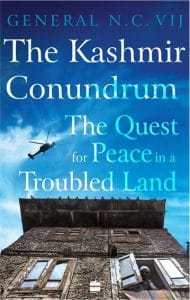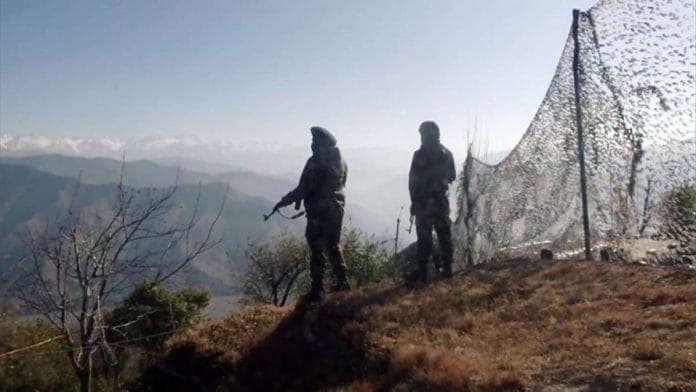As far as India is concerned, J&K was never an issue. India’s view all along has been that after Partition happened in 1947, India has moved on and so should Pakistan. Pakistan, however, could not bring itself to see the reality, and for them, J&K has always remained an unfinished agenda of the Partition. As a result, in the seventy years after Partition, they fought four wars and unleashed a proxy war on India for thirty years. In the process, they have inflicted countless miseries on the people of the state. They have radicalised the people of Kashmir, the same people who were proud of their Sufi culture not too long ago.
For a Kashmiri, the ethnic aspect of being a Kashmiri is important, but there has also developed a strong and overriding Muslim aspiration. However, it may still be true that if a Kashmiri Muslim and a Kashmiri Pandit meet each other outside the Valley, they may hug each other. This is because being a Kashmiri takes precedence over being a Muslim or a Hindu. Yes, there is a political divergence, but ethnicity cannot be ignored. Similarly, when we talk of radicalisation, some people are of the view that there has been a political radicalisation in the Valley and not necessarily a religious radicalisation. They also feel that radicalisation in Kashmir is not a cause of the conflict but rather an outcome or an effect of it. Whichever way one may look at it, the fact is that the Islamist radicalisation in Kashmir is a major threat today. There should also be no doubt that radicalisation of the Kashmiri populace has come about because of Pakistan’s concerted efforts in this direction.
When one looks at various survey reports, it is obvious that the Kashmiris are being radicalised by the Wahabi, Barelvi and Salafi ideologies. Perhaps this shift has also to do with how the global Islamist revolution is working. How does one otherwise explain the fact that just before he joined the militancy, Zakir Musa was an engineering student in Chandigarh, enjoying a secular life. He belonged to a prosperous family, with a father who was an engineer with the Public Works Department and a brother who was a doctor, both working with the government. And yet Musa became a staunch radical overnight. It is for scholars to study this aspect, but the fact is that fundamentalism in Islam has already acquired a central place and the entire world is trying to come to grips with it. The killings in Christchurch (New Zealand) on 20 March 2019 in two mosques are another example of how seriously the world is affected by Islamophobia. Kashmir is thus no exception.
India must therefore take all the necessary steps to curb this radicalisation so as to ensure that this menace does not spread to the rest of India, where the Muslims appreciably are quite moderate. The solution for this radicalisation/Islamisation can only be found through wise political process, dialogue and all-round development. There must be ample educational facilities and jobs available for the youth in Jammu, Kashmir and Ladakh.
And last but not the least, since they are India’s youth, even when misguided, we ought to have compassion for them. They have to be treated like family members who have gone astray. A feeling of security amongst Kashmiri students in mainland India must be ensured. They should be India’s ambassadors in Kashmir.
Also read: CPI(M) wants J&K HC chief justice removed over remarks on Constitution, writes to President
People of Kashmir Are India’s People
The people of Kashmir are India’s people and it must make them feel that it is genuinely interested in their well-being, which in fact very much is a reality.
India should remember that Prime Minister Vajpayee won the hearts and minds of the Kashmiris when he said in Srinagar in 2003 that he would like to deal with the Kashmiri brethren with an approach of ‘Kashmiriyat, jamhooriyat and insaniyat’ (Kashmiriyat
denotes amity and cordiality, jamhooriyat denotes democracy and insaniyat denotes humanism).
The people of Kashmir are as much at the centre of the issue as is the geographical territory of Kashmir. They are the most affected by the situation and hence they are the most important players. Dialogues with representatives of the people of all shades and opinions in the Valley, Jammu and Ladakh must be commenced at various levels without any preconditions. It is important to instil a sense of belonging in the hearts of the people of the erstwhile state. India’s security forces also, when dealing with the Kashmiri people, have always kept this aspect uppermost in their minds. All the propaganda about human rights violations is the handiwork of the Pakistani deep state.
As a matter of fact, it is to the credit of India’s security forces that they have accepted casualties to themselves many a times just to avoid collateral damage. No country in the world takes as many precautions in this regard as does India. If the people realize this fact and cooperate, then gradually the security forces present in the Valley can be reduced.
Also reads: Non-residents bought 7 plots of land in J&K since ban was lifted, all in Jammu: Govt tells RS
Strategy at the International Level
Following the abrogation of Articles 370 and 35A, the world stood by India. The international opinion is that J&K is a bilateral issue between India and Pakistan. India’s efforts to isolate Pakistan diplomatically as a state sponsor of terrorism had also yielded tangible results. Following the Pulwama attack, the diplomatic pressure on Pakistan from the US, European Union countries and the OIC, especially UAE and Saudi Arabia, is a good example of these efforts. These have been fruitful because of India’s financial might and the strong diplomatic ties that it has with these countries.
Today, the world stands with India, but maintaining this status will have to be an ongoing effort. India cannot afford to be complacent on this account.
Diplomatic Initiatives
The work by India’s diplomatic missions abroad to promote a positive perception and negate the propaganda by the separatists and Pakistan are not being given the salience that they merit. The Pakistani government’s diplomatic missions and diaspora score over India in maintaining a high pitch of continuous rhetoric and projecting their viewpoint. India needs to clearly and proactively convey its threshold of tolerance for Pakistan’s active promotion of terror in Kashmir. Pressure has to be brought on Pakistan from the US, European Union countries, Russia and even OIC to shun the path of terrorism. India must even try and persuade China. India has to convince these countries of its concerns regarding terrorism. This should not be difficult as the world is convinced that Pakistan is an epicentre of terrorism.
Also read: Pakistan lost the 1971 war, but its project of Islamist violence won the larger conflict
India’s Relations with Afghanistan and Iran
India has traditionally had great relations with both Afghanistan and Iran. As a matter of fact, India has invested over USD 3 billion in Afghanistan and earned their appreciation. Their Parliament building and a hospital in Afghanistan are just two of the many monuments that stand in testimony to India’s friendship with them. All this assistance has been financial and developmental in nature. India has always enjoyed maximum credibility with the people of Afghanistan. It must build on that.
The proposed American pullout from Afghanistan by September 2021 went totally haywire as, by 15 August 2021, the Taliban had already entered Kabul because of the absence of any resistance whatsoever. With the sudden collapse of state forces, then President Ashraf Ghani fled the country to the UAE, which gave him amnesty on humanitarian grounds. The entire American plan of a peaceful transfer of power lay in tatters. A rebellion did erupt in Panjshir Valley under the leadership of Ahmed Massoud (son of the former lion of Panjshir Ahmad Shah Massoud) and former Vice President Amrullah Saleh but it was soon crushed by the Taliban with the close help and guidance of the ISI. The Taliban is thus in full control of Afghanistan. The developments in Afghanistan will have grave implications on the entire region. India would have liked to continue to work in close coordination with Afghanistan, but now, with the Taliban regime in Kabul, the first question that arises is whether India will have an official relationship with Afghanistan or not. A decision on this is yet to be made, and it may be some time before a final call is taken.
India conducts extensive trade with Iran and used to import almost 30 million metric tons of oil annually from it. US sanctions against it resulted in these imports being halted for a short while, but Iran will continue to be India’s friend in the long run. It has borders with Pakistan and a constant problem on that account by way of terrorism. Both India and Iran suffer from the same menace from Pakistan. All these are factors in India’s favour, but it has yet to take advantage of them. India must continue to maintain its traditionally strong relations with Iran, even when the sanctions against it by the US continue.
 This excerpt has been taken with permission from HarperCollins Publishers.
This excerpt has been taken with permission from HarperCollins Publishers.






